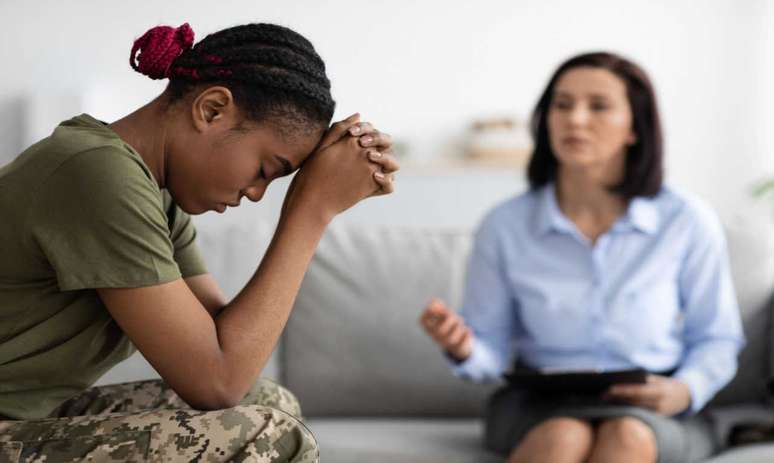The psychologist explains that traumas can arise from everyday situations, and are divided into different types, impacting the entire body
When you think of trauma, what comes to mind? Generally the subject leads us to relive situations of extreme impact, such as violence, hunger or accidents. This leads us to conclude that if we don’t go through tragic situations, we don’t experience trauma.
However, trauma is not only related to extraordinary and impactful situations. They can be the result of everyday situations for each of us, such as losses, relationship ruptures, frustrations, illnesses – ours or those of loved ones – or the most varied types of stress.
What is Trauma?
Who explains is the psychologist and trauma specialist, Ediane Ribeiro. According to her, trauma is a stress overload in our nervous system that results from unexpected, challenging experiences for us, with some kind of emotional charge such as fear, anger, shame or guilt, for which we have no immediate strategies. deal with and very often lead to feelings of isolation or helplessness.
“It is important to differentiate trauma from traumatization. Trauma is the experience of stress overload at the time of the traumatic event, but not all trauma generates traumatization. Traumatization is when the body does not fully return to balance after this activation and it continues to produce a response to stress, leaving signs and symptoms that persist over time even after the situation has ended”, describes the specialist.
According to Ediane, trauma can arise when we are confronted with emotionally charged situations that, consciously or unconsciously, our nervous system perceives as threatening to us. This causes our brain to activate the warning system, releasing hormones that prepare us to respond to danger.
What happens in the body during a traumatic event?
“At first, adrenaline and noradrenaline are released. This puts us in a state of alert and prepares us to react: fight, flee, cry for help or freeze if none of these actions are possible. If the situation does not resolve resolves quickly, enters the endocrine system with cortisol to support our reaction to stress. At that moment we are experiencing the trauma and this changing physiology will interact with our fears, beliefs and life history, increasing or decreasing the response”, he points out .
After overcoming the stressful situation, the body needs to unload all this activation and get back into balance. However, this doesn’t always happen completely. “It is as if the brain is not receiving the feedback that the danger has passed and continues to produce a response to it. This can generate symptoms or leave signs that remain over time, from nightmares, increased basic anxiety to dysfunctional behaviors, such as emotional dependence, compulsions and addictions,” he warns.
What are the types of trauma?
According to the psychologist, the most common types of trauma are:
Acute trauma: it is the result of a specific event that is easily recognized as having an impact, such as a serious accident, brutal violence, sudden and sudden loss, or serious illness. They are the result of those situations that often mark the person’s life before and after and which have accompanied strong fear, terror or intense vulnerability.
Chronic trauma: it is not the result of a single impactful episode, but of repeated and prolonged exposure to situations that cause stress. This is the case with racism or the experience of discrimination and prejudice, situations of social vulnerability, chronic stress at work. “The burnout syndrome is a stress syndrome deriving from prolonged exposure to experiences that overload the nervous system, therefore, it can be considered a chronic trauma”, points out the psychologist.
Complex trauma: it is like a subtype of chronic trauma, as it is also characterized by repeated and prolonged exposure to the traumatic event. However, in complex traumas this occurs within a significant relationship between the people involved (family or intimacy contexts). Examples are repeated childhood abuse by family members, witnessing domestic violence by one of the caregivers, abusive relationships between couples, etc.
Developmental trauma: it is also a trauma that happens in relationships, but at a very early stage, in the relationship between the child and the first caregivers. It results from the type of bond and attachment learned in the first months/years of life.
indirect trauma: it is a type of secondary trauma. The experience was not lived directly, but by being frequently exposed to stories of pain and suffering, the person can end up absorbing some of the traumatic symptoms. It is a frequent subject of study for health professionals, for example, who daily deal with traumatic histories in an empathic relationship.
How to treat?
According to the specialist, the treatment of trauma must consider the specificities of each case. But in general you need to have an evaluation with a professional. The treatment can contemplate together or separately some types of intervention, such as the therapeutic process, the use of drugs, the change of routine with the practice of physical activity and a balanced diet.
Furthermore, Ediane also points out that some measures in our daily life can help us with this treatment. “Every day, taking care of the pillars of health helps keep the body and mind better prepared to deal with traumatic activations and reduce the chances of traumatization or increase our resilience,” she says.
For this, the specialist indicates:
- Quality sleep;
- Proper nutrition;
- Regular physical activity;
- Pay attention to your emotions and personal limits;
- Moments of silence and relaxation;
- Practices that connect you with the present moment, such as breathing and meditation, for example;
- Cultivate quality relationships. In this regard, Ediane says that “it is unanimity, good relationships are protective against trauma,” she concludes.
Source: Terra
Ben Stock is a lifestyle journalist and author at Gossipify. He writes about topics such as health, wellness, travel, food and home decor. He provides practical advice and inspiration to improve well-being, keeps readers up to date with latest lifestyle news and trends, known for his engaging writing style, in-depth analysis and unique perspectives.








